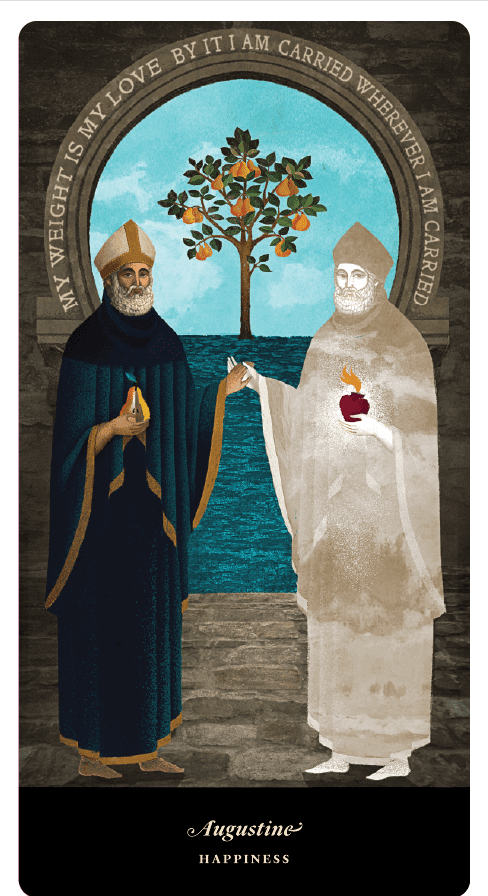Augustine of Hippo | My Weight Is My Love By It I Am Carried Wherever I Am Carried 354 CE ALGERIA 430 CE ALGERIA
Augustine is a philosopher of happiness. He writes about the soul’s internal struggle to find happiness and calm—paradoxically, by way of unhappiness. He believes that each of us already knows what makes us happy, or else we would not be able to recognize our happiness once we have found it. But whether it is by force of habit, self-destructive behavior, or inner conflict, transitioning to happiness will likely involve a struggle. Fortunately, when we are on the wrong path, our own dissatisfaction will serve as an engine guiding us to greater truth. Augustine’s mother pleaded with him to take up religion, and from her he had knowledge of God’s grace and rewards. Yet Augustine learns that it is not enough to simply know. We must also believe and attain knowledge through love. He yearned for happiness in God’s love but instead he describes being in love with his own undoing. Augustine teaches us that we will be embraced in kind by that toward which we direct our love. He asks us to love and be loved by what calls us to be happy and calm.

